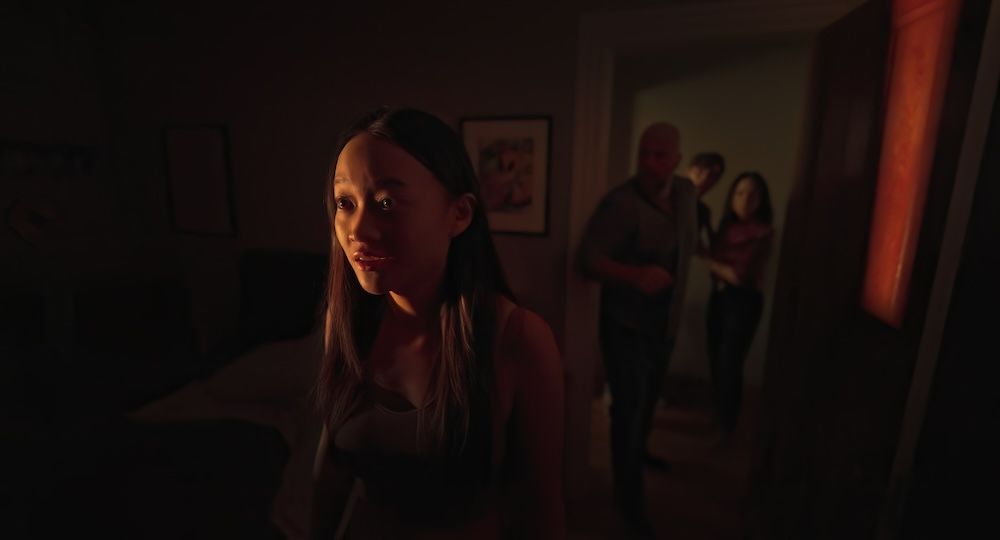
Review: Presence (2024)
At some point during the first five minutes of Steven Soderbergh’s new haunted house movie, Presence, a hint of nausea straight from Hollywood’s better days of Blair Witch and Jason Bourne may set in. Thankfully, it passes within a minute, but not without serving as an immediate reminder that, even if Netflix makes movies to fold laundry to, the moving image still has an inexplicable power to affect how we feel—in all senses of the word.
Since last year’s Sundance, film fans have been crowing about how a director long known for his technical prowess shot this project entirely from the first-person perspective, a task Orson Welles famously tried to pioneer in his proposed adaptation of Heart of Darkness before he opted to slack off and make Citizen Kane instead. Yet, despite Soderbergh’s reputation as the coldest craftsman this side of Kubrick, he has made a movie about what it means to feel circa 2024, a theme the movie undertakes with such verve it leads one to wonder if its opening motion sickness wasn’t right on point.
Though Presence mines similar territory as the suburban ghost stories before it, the film opts to revel in long-simmering conflicts instead of showy set pieces. Midlevel finance manager Rebekah (Lucy Liu) dragged her family into this model craftsman in the most exclusive suburban enclave so that her star swimmer son (Eddy Maday) could have the best shot at scholarships. Whether she’s just tiger momming or going full Lori Loughlin isn’t quite clear, but her zealotry has begun to erode her relationship with her husband (This is Us’s Chris Sullivan) and daughter (Callina Liang), who is grieving the loss of her best friend to a purported overdose.
As much a searing family melodrama as a horrorshow, Presence finds its real terror in the hollowness of the urbane secular upper-middle class ideal. It’s a rejoinder to extracurricular overscheduling and the self-interest of cutthroat careerism as the peak of contemporary greatness. But, in its scathing critique of the 2%, it offers a glimmer of hope for those who see that there just may be something out there bigger than themselves.
Presence is now playing in theaters.
